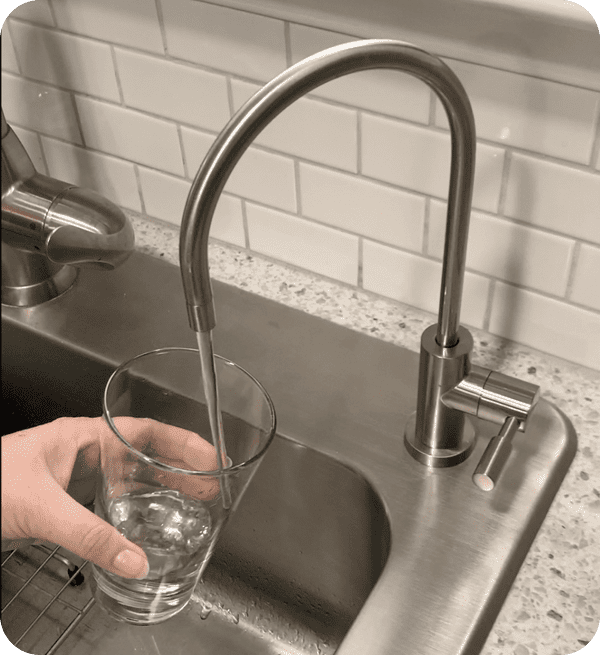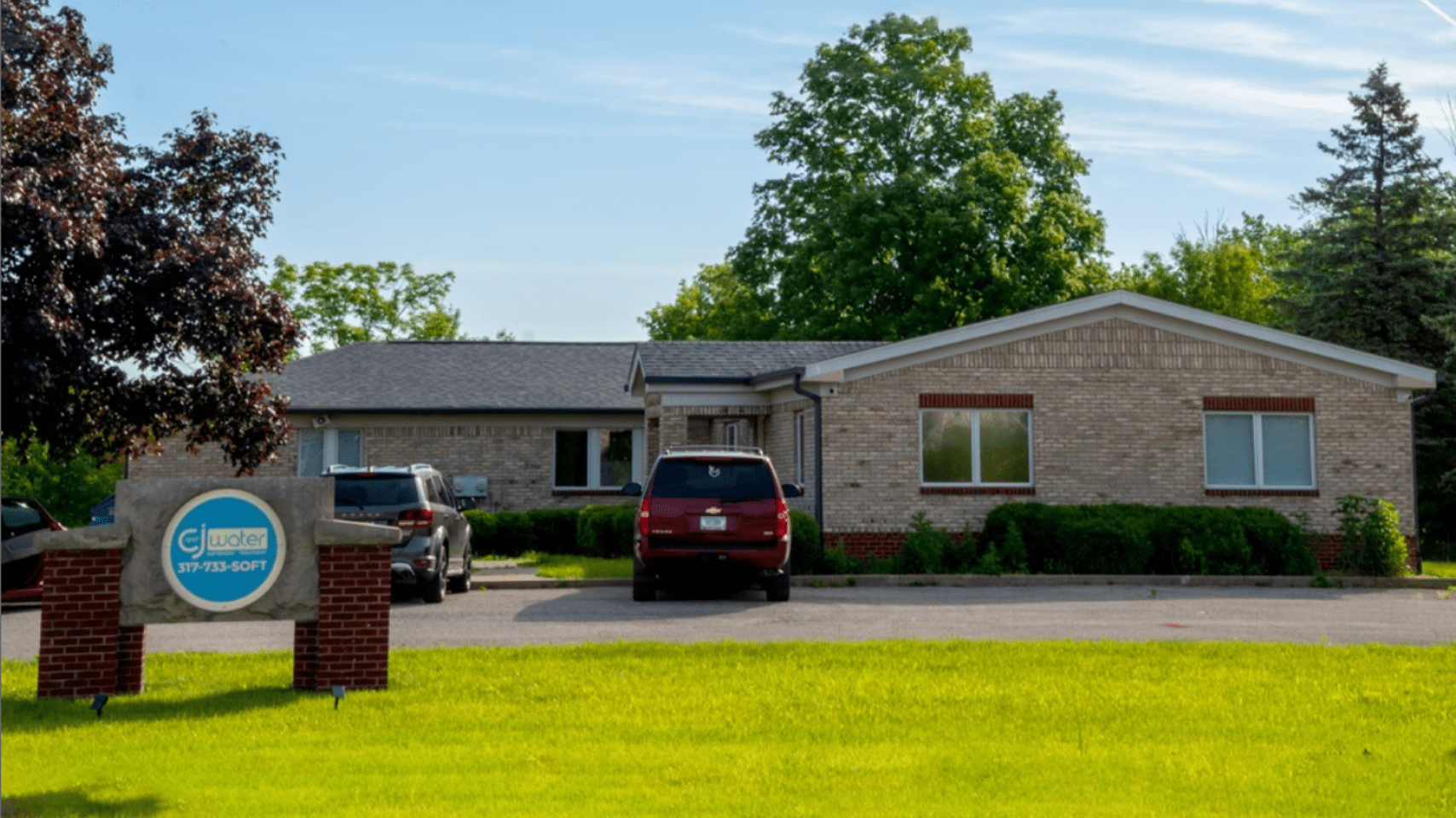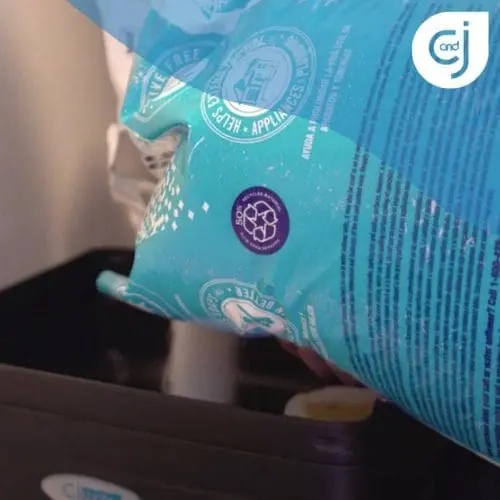Well Water Problems v. City Water Problems
How does well water itself actually differ from city water? Is well water really any better than the water you get from the city? If so, how and why? These are all great questions! As a company that drills and services water wells, we love introducing our customers and community to the many benefits of using well water. However, a private water well isn’t always an option for some homeowners. Whether you own a well or are hooked up to the city’s source, this is a great place to start your journey of understanding water wells and city water and their respective problems.
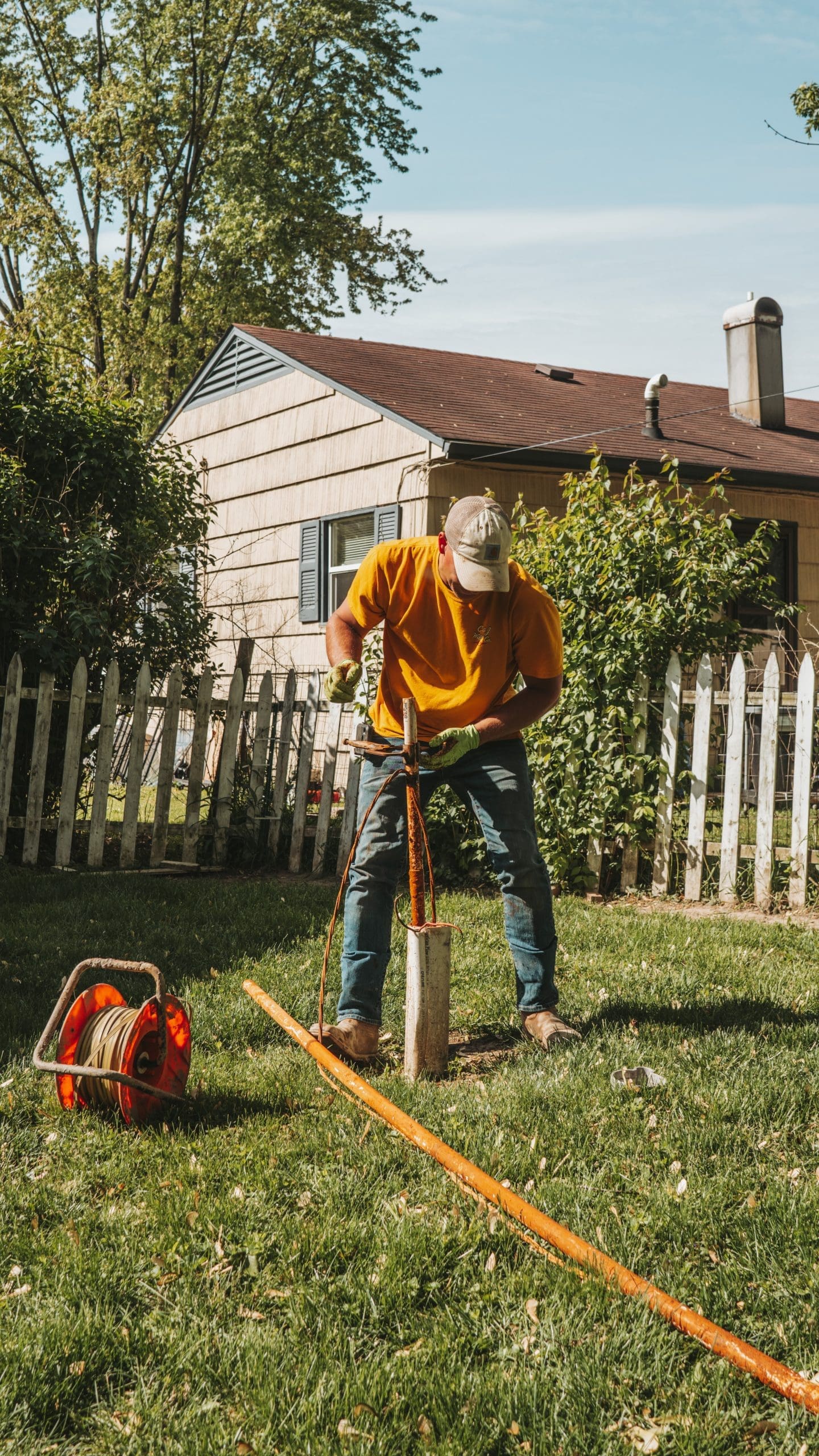 Water Availability
Water Availability
Well Water Availability — When a home is supplied with well water, it means that they get their drinking, bathing, and cleaning water from the private well on their property. Wells are built by drilling into the ground and accessing an underground aquifer. That water is then pumped into the house. A private water well is a viable option available to most Central Indiana residents. However, you could run into some problems if the underground aquifer on your property doesn’t produce adequate water yield or pumps extremely sandy water. The good news is, these problems can be solved by a reputable water well drilling company.
City Water Availability — Unless you move to a very rural area, there is a high chance that city water has been connected to your home. However, municipalities don’t always offer connections to homeowners that may be out of the way or in a place that the company doesn’t deem financially beneficial. Homeowners have the option to extend the water main to their property, but this is usually extremely expensive. From broken mains and boil advisories to other emergencies, issues with public water utilities are not uncommon. All of this, compiled with the effect that time will have on infrastructure across the nation, means that nothing is guaranteed. What is guaranteed is that if you have your own private well, you will be able to oversee and immediately fix any issues.
Water Responsibility
Well Water Responsibility — While a private water well give you the freedom to control your water quality, if your well runs dry it isn’t the city’s problem. Because the well is on your property, you are responsible for any maintenance, repairs, or additional drilling needed. Depending on the repair, it can be quite expensive. You are also responsible for the quality of your well water. It is up to you to have your water regularly tested to verify that it is safe to use. Chemicals, radiation, sewage, and dead animals are all potential pollutants that can contaminate well water. Runoff from farms, septic systems, nuclear power plants and a dead animal falling into your water source can all impact the quality of the water in your well. In fact, check out these statistics from the EPA.
It is clear if you have well water it needs to be tested regularly. Making sure the water is free from pollutants like chemicals, heavy metals, bacteria, and parasites is your responsibility—and you should take it seriously. It’s important to monitor a private well because you’re the only one that will. Bacteria can enter your well through damaged castings or shallow walls. The good news is, with regular testing, and/or a whole house water filter, you can rest easy that your water is fresh and healthy.
City Water Responsibility — If water is supplied to your home by the city, it means that the city collected the water, put it through a purification process, and then delivers it to your home via pipes. The city is responsible for getting safe water to your home. When you turn on your tap, you don’t have to worry about the last time it was tested. You should be able to rest assured that it is continually being tested by the city and that it meets or exceeds EPA quality guidelines. Many people prefer city water for this reason—it is one less thing to manage and take care of. While the city is responsible for getting safe water to your home, in some rare cases water utility companies have been negligent in keeping their customers safe. Natural disasters, like floods, can cause large-scale contamination of the city’s water supply. Because the water, pipes, and equipment need to be treated it can take a long time before the water is safe to use. Boil water advisories should ALWAYS be followed for as long as they are posted.
In addition to making sure the water is safe, the city also adds healthy nutrients and minerals (that were lost during the filtering process) to the water to safeguard the health of the public. If you are ever concerned about the quality of your water, you can always ask the city to test your water. In addition, the city is responsible for providing yearly reports on water being provided to homes.
 Water Dependability
Water Dependability
Well Water Dependability — A private water well provides an almost inexorable supply of fresh, potable water. This dependability is contingent on proper well maintenance and service.
Another problem that could arise with well water is the lack of electricity. Well water needs to be pumped out of the ground. If the electricity goes out, then your pump will stop working. If your pump stops working—no water. You might want to make sure that you have an alternative source of electricity (generator, solar), or be prepared to go without water if the electricity goes out. Additionally, if you are really worried about electricity outages, you could have a hand pump installed that requires no power (other than your muscles) to get water out of the well.
Another aspect of owning a private water well is the cost. While you won’t have a monthly bill, you will need to plan for preventative maintenance such as well cleanouts every ten years annual inspections, and filter replacements.
City Water Dependability — Because the city manages the water, they can turn it off. If you can’t make payments the city can turn off your water. If the city needs to unexpectedly treat the water, they may turn it off without warning. Turning off your water supply for treatment is a rare occurrence, but still, it is something that you don’t have any control over. Nationally, cities have been raising water bills. As water becomes more polluted it has become harder to treat. While it is very convenient to have water managed by someone else, it is also beginning to be a very inconvenient bill. Homeowners should start to think about the future of water in their city and realize that it is a very important resource that is under threat. Clean water is worth every penny because we can’t live without water.
 Water Quality
Water Quality
Well Water Quality — Because well water is coming from the aquifer underground, instead of run- off or surface water, it tends to be cleaner and fresher. Groundwater is also high in healthy nutrients and minerals that are good for the body, including children. Also, well water high in minerals often tastes better. Well water typically tastes better due to the lack of added chemicals. Public water is treated with chlorine, fluoride, and other harsh and dangerous chemicals.
Well water travels straight up from the ground—you get all the health benefits of clean water with none of the harsh chemical additives. Just make sure to check the area around your well and, again, test it annually. Anything that does happen to your water source is treatable with affordable water well treatment services.
City Water Quality — As mentioned above, city water is treated with harsh chemicals in order to eliminate bacteria and other pathogens. Chlorine and chloramines are the most common chemicals used to mitigate contaminants, but they both carry their own risks. In simple terms, chloramine is chlorine PLUS ammonia. Municipal water suppliers are now using chloramine even more than chlorine as a disinfectant chemical. One reason for the switch is due to concerns about the adverse effects of chlorination. But the main reason for the switch is that chloramine as a disinfectant remains in the water longer during the distribution process. In low dosages, chlorine and chloramines are generally safe in drinking water. The U.S. Environmental Protection Agency (EPA) requires municipal water treatment facilities to maintain chlorine levels no more than 4 mg/L. This amount is considered safe for consumption. Most people want to remove chlorine and chloramine from their water simply because they don’t care for the strong chlorine taste or bleach-like odor of chlorinated drinking water.
There is also concern that chlorine can react with naturally occurring organic and inorganic matter in water to form disinfection byproducts such as Trihalomethane (chloroform) THMs and haloacetic acids (HAAs) which can potentially pose health risks, some are suspected to be cancerous. The fact that chloramine disinfectant remains in the water longer than chlorine (during the pipeline distribution process) is a PLUS for municipal water suppliers. The downside of chloramine’s longevity is that chloramine is harder to remove and causes many issues, such as poor taste and odor, cancerous bi-products, and negative impact on sensitive pets and plants. Also, water containing chloramines may not be used for fish or kidney dialysis equipment.
If you are considering adding a well to your property, connecting to city water, or just need to improve the quality of your water, regardless of source, we offer many resources to help you make your decision! We provide details about the state and local departments that can help with permits and finding the best location for your well. We are also bonded with many municipalities in Central Indiana so we can hook up your property to city water. Furthermore, our WQA specialists and licensed well technicians are more than capable to help get you the best quality water—contact us today!
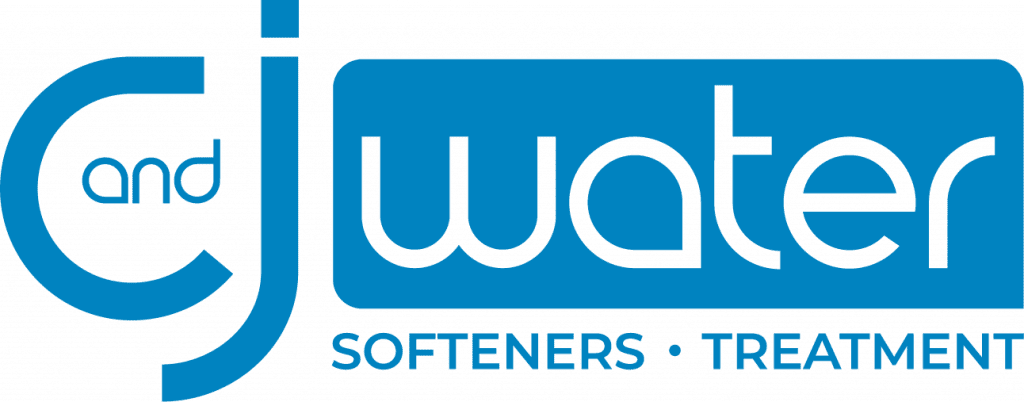

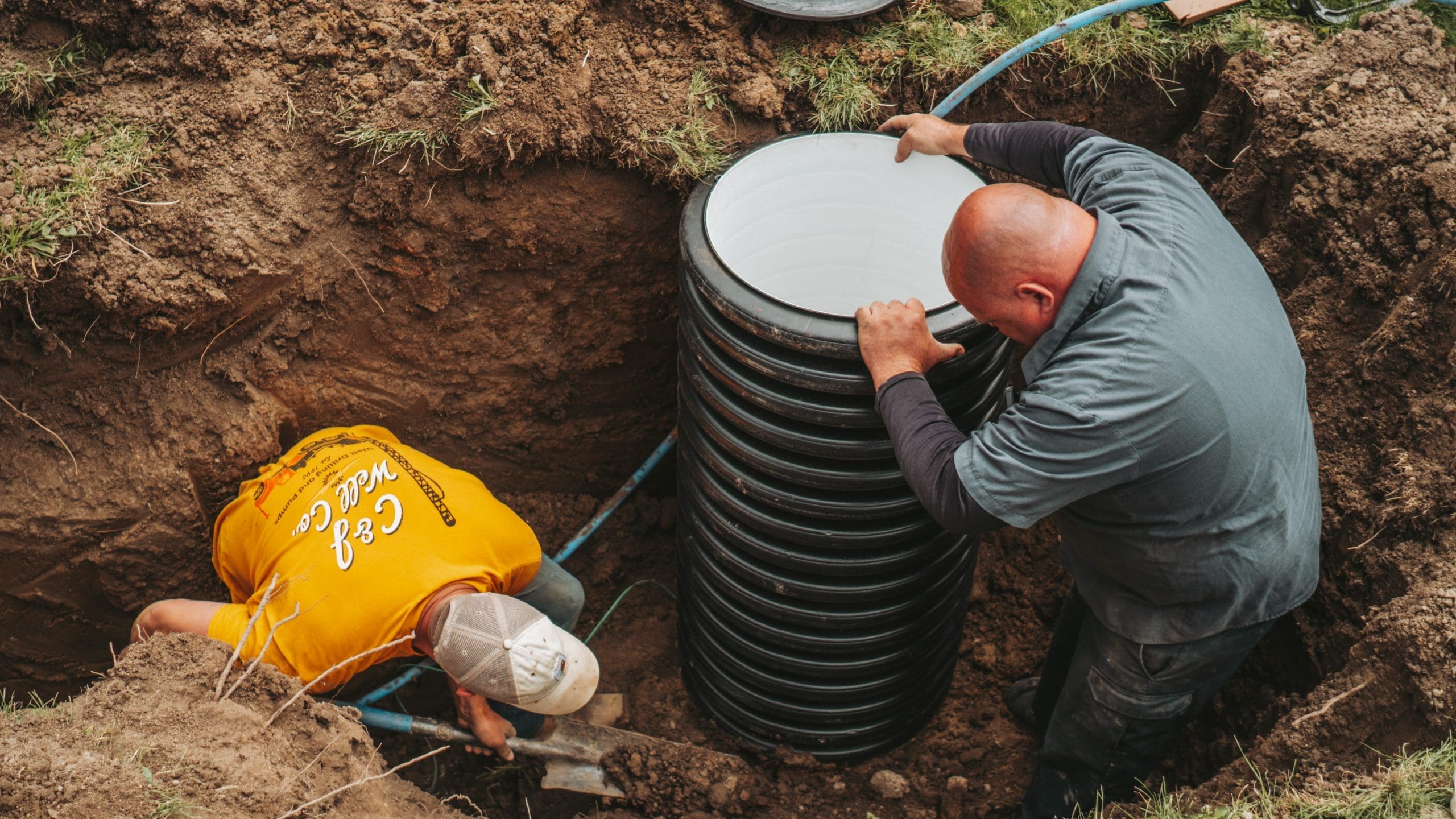 Water Dependability
Water Dependability Water Quality
Water Quality